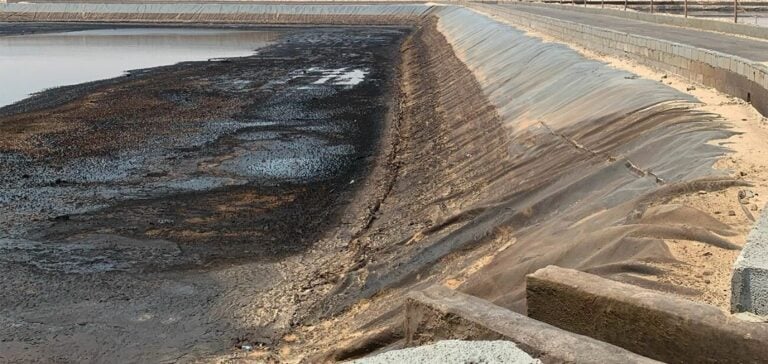Kazakhstan, a Central Asian country rich in natural resources, recently took a significant step in environmental rehabilitation. The national oil and gas company Kazmunaygas announced the decontamination of 362,781 cubic meters of oil waste accumulated in the Karajanbas field, a coastal area in the western part of the country bordering the Caspian Sea.
These waste materials, dating back to the Soviet period, have contributed to the degradation of nearby land and marine areas for more than three decades. Kazakhstan, which gained independence from the USSR in December 1991, has inherited a massive industrial pollution problem. This project, spanning four years, signifies a major effort to restore the environment in a strategically vital region for both ecosystems and residents.
The Caspian Sea: A Fragile Ecosystem
The Caspian Sea, considered the largest enclosed body of water in the world with an area of 371,000 square kilometers, is a critical point for the five bordering countries: Azerbaijan, Iran, Kazakhstan, Russia, and Turkmenistan. This vast waterbody is plagued by industrial pollution, overexploitation of natural resources, and the growing impacts of climate change.
In regions like Karajanbas, decades of oil extraction have severely contaminated soils and waters. Kazakh authorities have ramped up efforts to mitigate environmental risks, including designating “environmental disaster zones” to enhance monitoring and cleanup initiatives.
A Regional Context of Rehabilitation
Beyond Kazakhstan, other Central Asian nations, such as Tajikistan and Kyrgyzstan, are also mobilizing to rehabilitate sites affected by toxic waste from the Soviet era. These regions still house millions of cubic meters of radioactive and oil waste that pose a direct threat to the environment and public health.
Although ambitious, these rehabilitation projects often face budgetary and technical challenges. International support, in the form of expertise or funding, could play a crucial role in accelerating these initiatives.
Toward Sustainable Waste Management
Kazakhstan has committed to sustainable environmental management aimed at balancing the exploitation of its natural resources with ecosystem preservation. This colossal cleanup project in the Karajanbas field reflects a determination to catch up on historical delays in environmental protection.
For the country, these efforts are not just about cleaning up polluted sites. They reflect a broader vision to reduce the ecological vulnerability of critical regions under industrial and climatic pressures.






















